UN Women’s Executive Board visits Moldova to witness progress on gender equality
Date:
From 14 to 18 May, UN Women’s Executive Board undertook its first field visit to the Republic of Moldova to observe the country office’s initiatives on the ground and their impact. The Board’s mission involved meeting with a wide array of government officials, civil society representatives, local public authorities, private sector partners, the UN country team, and beneficiaries. As the governing body of UN Women, the Board provides intergovernmental support and supervision of the organization’s operational activities.
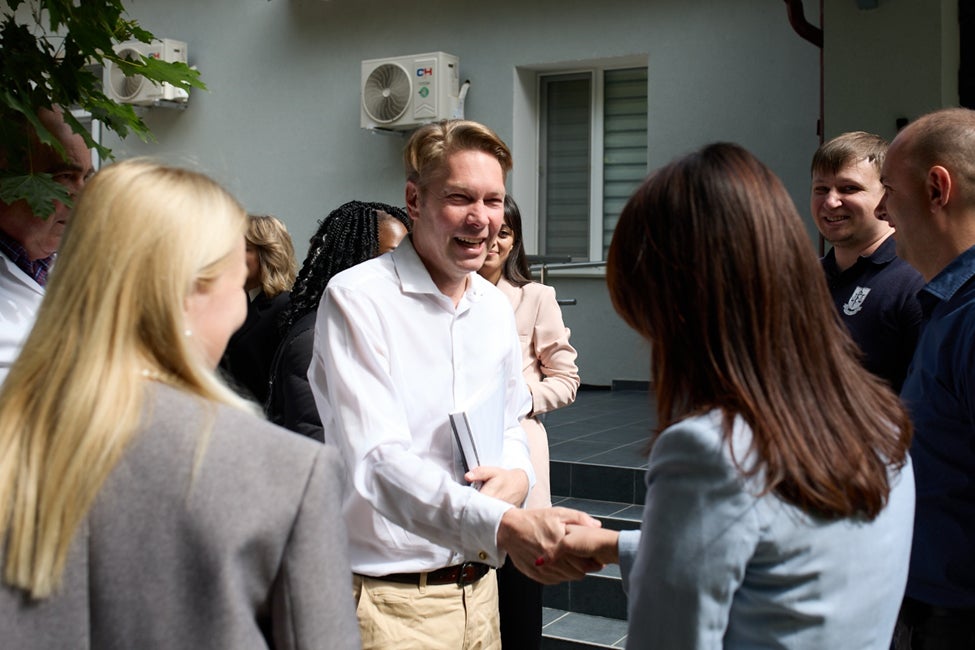
The Board’s itinerary included a visit to the first Regional Integrated Service for Victims of Sexual Violence in Ungheni district, where they acknowledged the pilot programme’s success since opening in November 2023. With the goal of enhancing violence prevention efforts, the Board met with representatives from the local police, hospitals and forensic sectors.
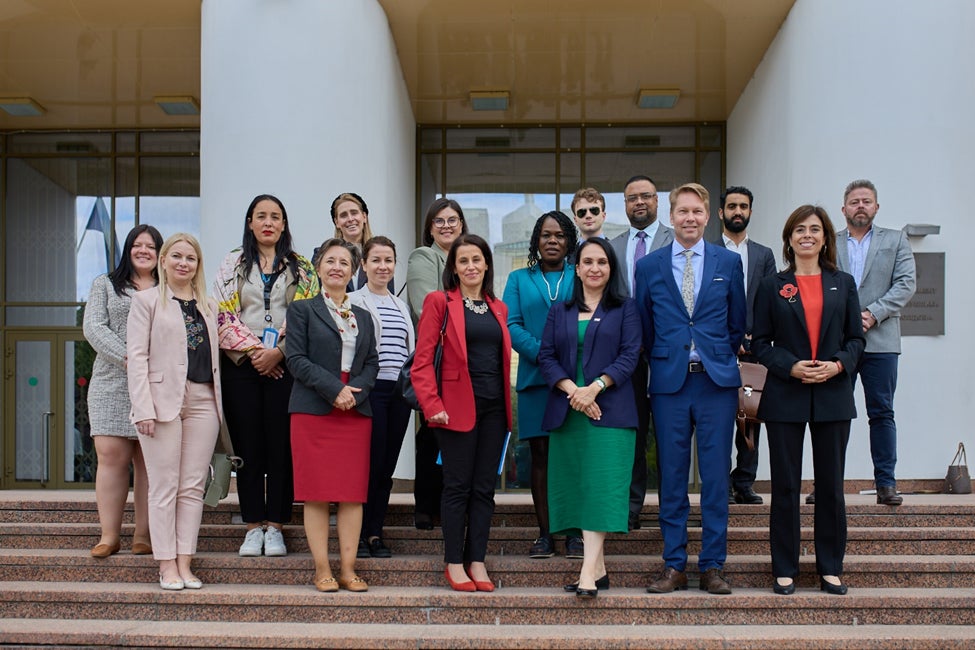
The mission continued with a series of meetings with central authorities, including Dorin Recean, Prime Minister of the Republic of Moldova; Marina Morozova, Deputy Chair of the Parliament Committee on Social Protection, Health and Family; Alexei Buzu, Minister of Labour and Social Protection; Adrian Efros, Minister of Internal Affairs; Daniela Misail Nichitin, State Secretary at the Ministry of Internal Affairs; and Sergiu Mihov, State Secretary at the Ministry of Foreign Affairs.
The Prime Minister expressed his appreciation for UN Women’s support in promoting gender equality and developing programmes for women’s economic empowerment in Moldova. Furthermore, Minister Alexei Buzu stressed the need “to receive further support so that progress made on gender equality is irreversible and other achievements are gained faster.”
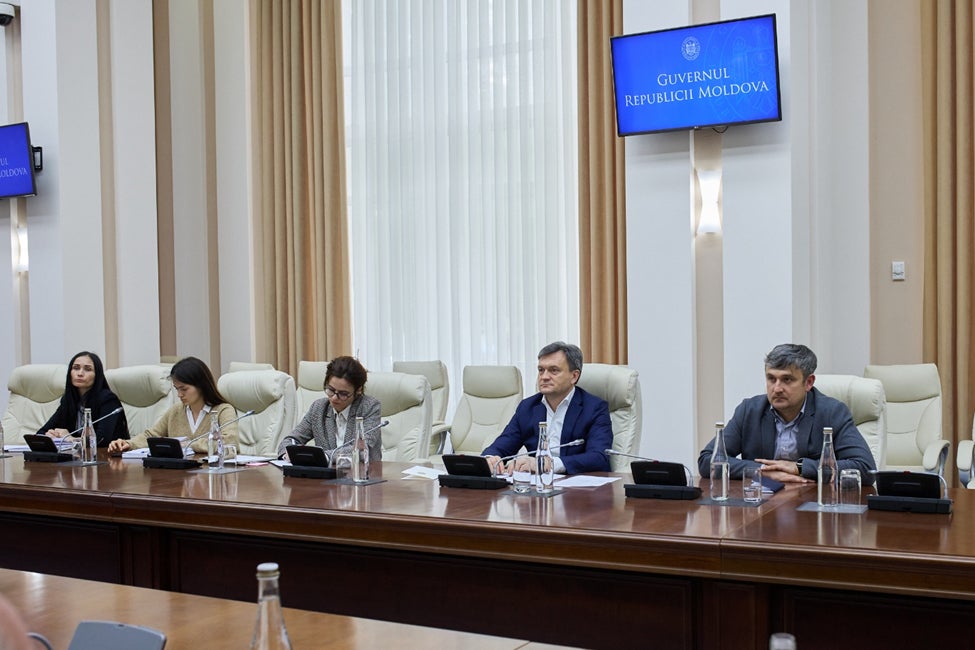
The Board members commended the authorities on their tireless work to advance gender equality in the country. They highlighted their commitment to working with women’s rights organizations and the increased participation of women in the public sector, adding that Moldova’s EU accession and achievement of the Sustainable Development Goals are mutually reinforcing processes.
Accompanying the Executive Board, Belén Sanz Luque, UN Women’s Regional Director for Europe and Central Asia, highlighted UN Women’s normative work with parliamentary and governmental bodies, emphasizing its technical support for legislation on gender equality, women’s empowerment, prevention of violence against women, childcare services and increased women's participation in leadership and politics. “It is also important to underscore the significance of local-level engagement by supporting increased participation of women as local leaders,” she said. “This is crucial because local leaders are closest to the communities and can genuinely respond to their needs.”
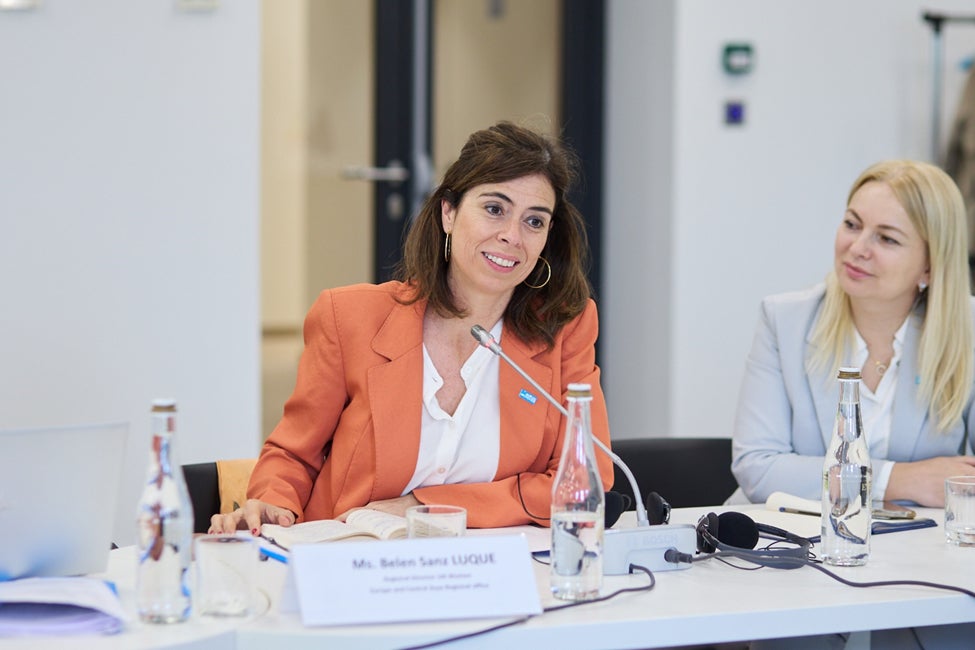
While meeting with the Board, civil society organizations and local authorities addressed challenges in promoting gender equality and discussed UN Women’s programmes to empower women with disabilities and Roma women and girls. The Board recognized UN Women’s efforts to implement gender-responsive strategies, foster socio-economic inclusion among women refugees from Ukraine, and promote women’s participation in conflict resolution processes.
Moldova’s commitment to the Women, Peace and Security agenda was also thoroughly discussed with the country’s Women’s Advisory Board (WAB), a group of civil society representatives and expert communities from both banks of the Nistru River. With support from UN Women, the WAB works to advance gender-sensitive peacebuilding efforts. Among the topics discussed were women’s crucial role in conflict negotiations, the promotion of inclusive security solutions, the challenges of the second National Action Plan for the implementation of UN Security Council Resolution 1325, the importance of capacity building for both refugee and local communities, and the need for further advocacy campaigns.
“From the many meetings we had with national and local public authorities, women entrepreneurs and civil society, we saw many active and dynamic women, agents of change who contributed to real progress in the field of women’s rights in the country,” said H.E. Halley Christine Yapi Bah, Ambassador and Deputy Permanent Representative of Côte d'Ivoire to the United Nations. “It is important now to uphold these achievements and to continue allowing women at all levels to take the lead and develop their full potential.”
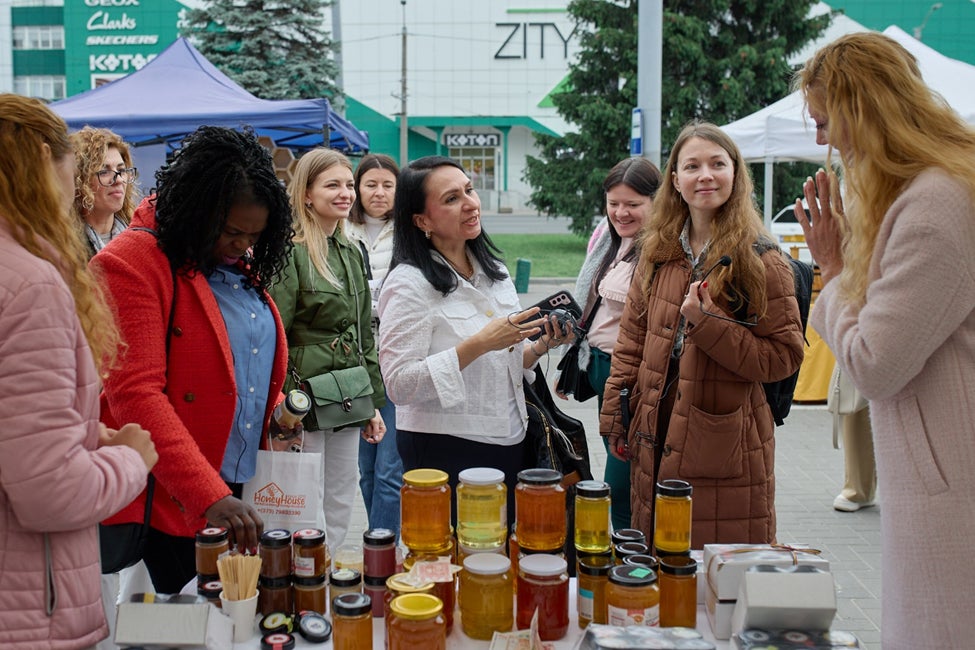
The mission took an extensive look at women’s economic empowerment in Moldova. The Board interacted with over 30 women entrepreneurs from Ungheni district and visited a fair exhibiting local products from woman-owned businesses. The entrepreneurs shared stories about how they built their businesses thanks to economic empowerment programmes supported by UN Women.
One of the entrepreneurs who met with the Board was Olesea Plăcintă, who makes dairy products from sheep and goat milk. “Thanks to these programmes, I’ve grown both personally and as an entrepreneur,” she said. “I received a grant, learned how to properly build a business in Moldova, and found the strength to develop a business that is not easy for a woman in our country.”
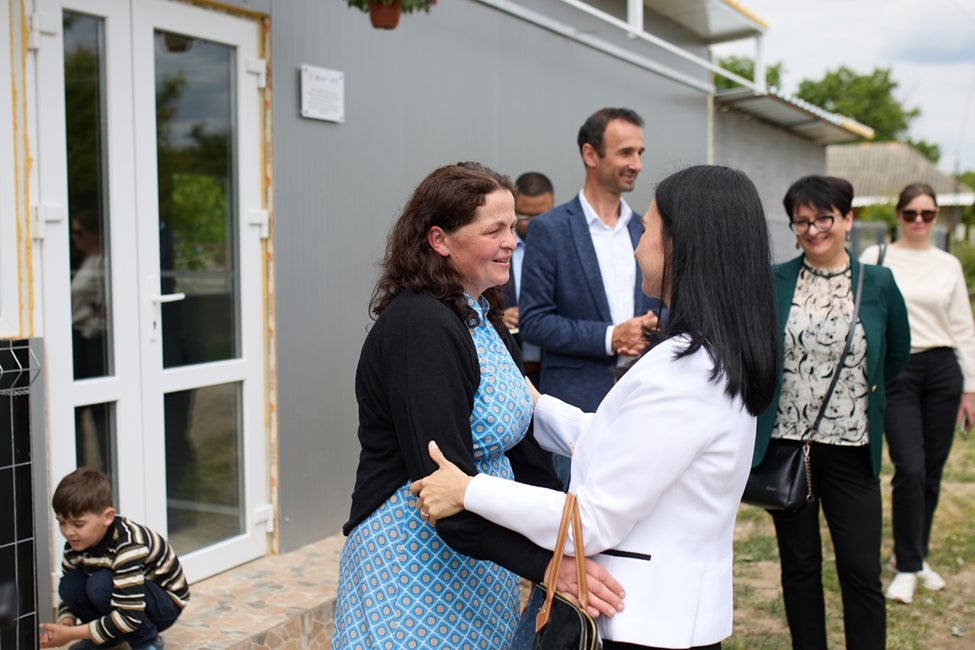
The Board also witnessed UN Women’s work in encouraging women’s participation in information technology (IT) as well as Science, Technology, Engineering, Arts and Mathematics (STEAM) fields. While visiting a STEAM gymnasium in Chișinău, where UN Women equipped a physics lab, they met with over 20 women from Moldova and Ukraine working in these fields as well as beneficiaries of various UN Women programmes. Anna Afanasova, an IT specialist from Ukraine, was granted six months of complimentary access to a co-working space. Reflecting on her experience, she emphasizes the value of having access to this community and space. “I appreciate all the networking opportunities and the experience I gained,” she said. “I’ve learned to be flexible and adapt to new circumstances.”
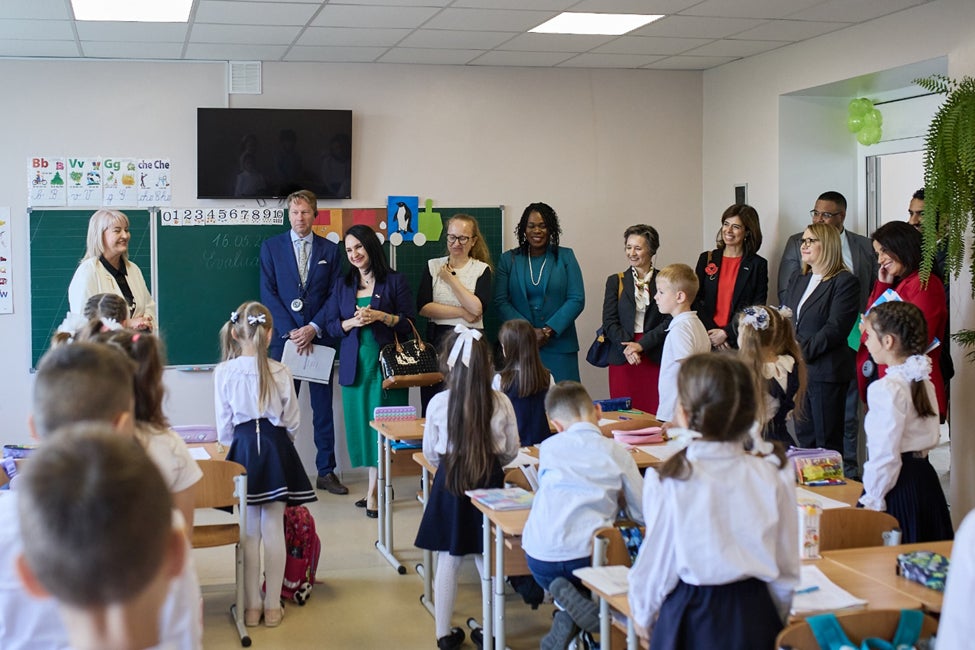
Natalia Iaroslavscaia, the Director of the Vasyl Levschi Lyceum, where UN Women inaugurated a digital lab, said the lab is equipped with the latest technologies that benefit not only the pupils but also the teachers, especially the elderly who are not familiar with technology. “Children are now eager for the IT classes,” she said. “They’re even staying after school to study further and learn new things.”
Delia Perciun, a pupil from Vasyl Levschi Lyceum, said the lab is exposing students to more opportunities as well as new ideas in web design or coding, which are being put into practice thanks to the new equipment. “The devices are new and sufficient for every pupil, and IT classes are now the most anticipated,” she said.
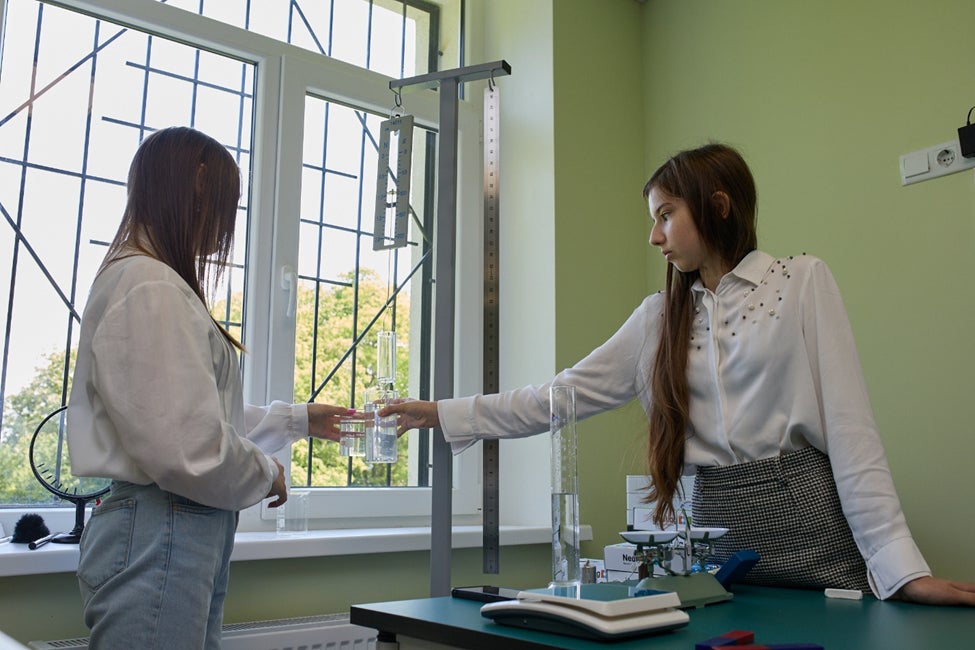
H.E. Andreas von Uexküll, Ambassador and Deputy Permanent Representative of Sweden to the United Nations, said that Moldova has clearly made many achievements in gender equality. “Over 40 per cent of Parliament members are women, and many mayors are women. A lot of legislation has been adopted,” he said. “There is still much work to be done, but with the help of an engaged government and civil society, as well as the support of EU embassies and the United Nations, I think Moldova will definitely become a model for gender equality in the rest of Europe.”